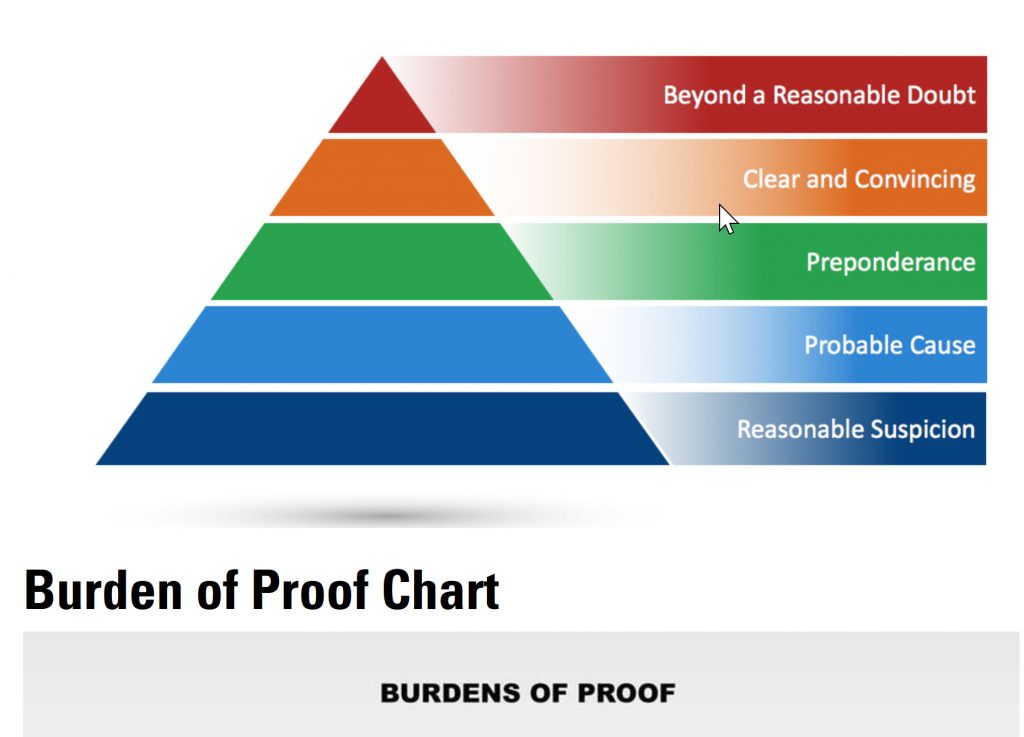Colorado Law – Plain View and Unlabeled Prescription Bottles

By H. Michael Steinberg Colorado Criminal Defense Lawyer
Introduction – Limits on the “Plain View Exception” to the 4th Amendment’s Requirement for a Search Warrant
Both the Fourth Amendment of the United States Constitution and Article II, section 7 of the Colorado Constitution prohibit unreasonable searches and seizures. Any analysis of an alleged violation of your Fourth Amendment rights begins with an understanding of what the right actually protects – your right to privacy, …for the government to leave you alone.
A warrantless search or seizure is presumed to be unreasonable, and therefore unconstitutional and illegal unless it is justified by one of the established exceptions to the search warrant requirement.
One of the most recognized exceptions to the requirement of a search warrant is the “plain view” exception the subject of this brief article.
No matter which of the exceptions the state claims attempts to use to justify a warrantless search, the state bears the burden to establish that a warrantless search falls within that exception.
For a comprehensive analysis of this complex area of law please – follow this link to www.Cornell.edu
Example of An Exception to the Warrant Requirement – The Colorado “Investigatory Stop” Exception
An investigatory stop of your care can be based on less than probable cause. A police officer may engage in an investigatory stop of a car and then question the driver provided three conditions exist:
First: The officer has reasonable suspicion that criminal activity has occurred, is taking place, or is about to take place;
Second: The officer has a reasonable objective for the stop; and
Third: The scope and character of the intrusion is reasonably connected to its objective.
The “Plain View” Exception to the Search Warrant Requirement
Another of the recognized exceptions to the Fourth Amendment’s requirement of a search warrant is the “plain view” exception.
Recently, the Colorado Court of Appeals had occasion to review the “plain view” exception in the context of locating unlabeled prescription bottles within a case involving an investigation into an alleged hit and run in a Colorado parking lot.
The case, People v. Alemayehu, 2021COA69 (decided May 20, 2021) is especially relevant because it is all too common, in traffic investigations for the police to “see” items in “plain view” in a vehicle they have stopped or somehow contacted that draw their attention and their suspicion.
These “suspicious” items are often seized and then searched by the police without a search warrant leading to the filing of criminal charges all across Colorado and the nation. The issue for criminal defense lawyers in these cases is whether the evidence seized in the search is legally admissible at a later trial arising out of the seizure of that evidence.
Under the plain view exception, a warrantless seizure of a container is reasonable for Fourth Amendment purposes if the police observed the container in plain view and the seizure satisfies three requirements:
First: The police were lawfully in the position from which they viewed the container,
Second: The incriminating nature of the container was immediately apparent, and
Third: The police had a lawful right of access to the container.
The Relevant Facts of People v. Alemayehu, 2021COA69 (May 20, 2021)
In this case, the defendant, Alemayehu, had accidentally backed into another car in a private parking lot. Instead of leaving a note providing the necessary information to the owner of the damaged car, he left a torn lottery ticket that provided no identifying information at all and then moved his case 20 to 30 yards away.
A bystander called the police.
During the investigation of alleged the hit and run the police discovered three unlabeled prescription bottles from a pocket at the bottom of the defendant’s driver’s side door.
The police officers opened the pill bottles and, finding suspicious-looking pills inside, quickly identified them as the controlled substance oxycodone. The defendant was charged, tried, and later convicted of the felony of illegal possession of a controlled substance.
The Alemayehu Court examined the facts of the case and found that the police investigation met conditions one and two of the plain view exception above – the police were lawfully in the position from which they viewed the container and the incriminating nature of the unlabeled prescription bottles was immediately apparent.
Specifically, the Court found that since the prescription bottles were unlabeled the deputies had “reasonable suspicion” to continue investigating the pills’ nature. What the Court did NOT find was that finding unlabeled prescription bottles alone amounted to the “probable cause” necessary to open those unlabeled prescription bottles without a search warrant.
Understanding the Difference Between Reasonable Suspicion and Probable Cause
“Reasonable suspicion” is not the same as “probable cause.”
Reasonable Suspicion
The reasonable suspicion standard is met when the “police possess some minimal level of objective suspicion, not just a hunch, that a person is committing, has committed, or is about to commit a crime.”
The relevant question is this:
whether, under the totality of the circumstances, the specific and articulable facts known to the officer at the time of the encounter and the rational inferences from these facts create a ‘reasonable suspicion of criminal activity.
The police may seize a container for example based on reasonable suspicion, but they need the higher quantum of evidence of probable cause to search that container. This requires the police to “associate the item with criminal activity without conducting a further search.”
If the police are unable to establish probable cause that the seized item is the fruit, instrumentality, or evidence of crime without searching it, it cannot be searched.
All evidence and information that is obtained as a result of the illegal searches and seizures must be suppressed. All fruits and derivatives of illegal searches and seizures must also be suppressed since any direct or indirect use of those fruits or derivatives violates the rights of an accused person under the United States Constitution amendments four and fourteen and the Colorado Constitution. Art. II, Sections 7, 25;
While the Court did find that the police had “reasonable suspicion” to continue investigating the pills’ nature, the Court did NOT find that upon discovering the unlabeled prescription bottles the deputies had “probable cause” to associate the unlabeled prescription bottles with criminal activity.
Probable Cause
Probable cause is a more demanding standard than reasonable suspicion.
Probable cause exists:
when, under the totality of the circumstances, the objective facts and circumstances warrant the belief by a reasonable and prudent person, in light of that person’s training and experience that the object viewed is associated with criminal activity.
In evaluating probable cause, the courts take into consideration a law enforcement officer’s experience and training. Law enforcement may draw on their personal experience and specialized training and the inferences from and deductions they make from that experience and training as part of their assertion they had probable cause to conduct a warrantless search.
The “Immediately Apparent” Requirement
The importance of the Alemayehu Court decision is this: the fact that a container may have been lawfully seized under the plain view exception to the requirement of a search warrant does not automatically mean that that container may then be opened and searched without a warrant.
Because the “touchstone” of the Fourth Amendment is the right to privacy. The Fourth Amendment provides the right of an owner of a container to conceal its contents from governmental intrusion:
…and a search of the concealed contents of a seized container must be either accompanied by a search warrant or justified by an exception to the warrant requirement.
On the other hand, a container may be properly be searched without a warrant if its contents are immediately apparent or the contents are a “foregone conclusion.”
Although the pill bottles, in this case, were translucent enough to see that they contained pill-shaped objects, they still were opaque enough to conceal the specific appearance or identity of the pills.
Each case in this area of container searches will ultimately turn on the facts of that case and most likely have to answer this important question: was the incriminating nature of the plainly visible to the police without the need to search that container? Was the criminal nature of the contents of that container “immediately apparent” to the police without the need to further search that container?
Plain View and Searches of Closed Containers as Unlabeled Prescription Bottles
In the Alemayehu Case, the police officers’ opinions, based on their experience and their training were simply wrong. The officers believed that it was illegal to have pills in a bottle without a label on it. That is not the law in Colorado.
There is no Colorado law making it illegal to remove labels on prescription bottles. The law on this issue is found in Colorado Revised Statute Section 18-18-413 C.R.S., which reads:
[a] person to whom or for whose use any controlled substance has been prescribed or dispensed by a practitioner may lawfully possess it, but only in the container in which it was delivered to him unless he is able to show that he is the legal owner or a person acting at the direction of the legal owner of the controlled substance.
While the officer testified at trial that “more often than not a torn-off label indicates that either the pill bottle belongs to someone else or the substance inside the pill container is no longer the same substance that was originally prescribed in the container.”
Wrong, Colorado law actually allows possession of a controlled substance by the owner of those controlled substances in any container the owner wishes to use.
Even if the police find unlabeled prescription bottles, as in this case, without more, such as an admission by the possessor of the bottles that the pills are not theirs, they have no idea, as to whether the unlabeled prescription bottles belong to that person or someone else. The police cannot make that determination without further investigation – a search of the contents of the bottles – and that required probable cause.
In the words of the Court:
[T]he fact that a container is lawfully seized under the plain view exception does not automatically mean that it may be opened and searched without a warrant.
The Fourth Amendment provides protection to the owner of a container that conceals its contents from plain view, and a search of the concealed contents of a seized container must be either accompanied by a search warrant or justified by an exception to the warrant requirement.
“Bridging the Gap Between Reasonable Suspicion and Probable Cause – “Unusual Circumstances”
While the Alemayehu case held that an unlabeled prescription pill bottle creates reasonable suspicion to further investigate the identity of the true owner of the bottle, it does not, alone, created probable cause to arrest a suspect for the illegal possession of a controlled substance.
However, it must be noted, that the Court added to their ruling that in a given case there may be “unusual circumstances” surrounding the investigation that could bridge the gap between reasonable suspicion and a finding of probable cause.
One example of the kind of “unusual circumstances” discussed by the Court would be an investigation that included an unlabeled prescription bottle and a suspect who visually appears to have been driving a vehicle under the influence of a controlled substance.
The Court reviewed several cases from other states that found similar “unusual circumstances.”
In one case the surrounding circumstances included a defendant who smelled of alcohol, admitted to drinking alcohol, and was passed out in a public place thus giving rise to a “practical, nontechnical’ probability that the unlabeled pill bottle he carried contained contraband.”
However, the Court also made very clear that:
….unless there were other unusual circumstances which would have elevated the deputies’ suspicion to probable cause, the deputies would have lacked the authority to seize the item for further inspection under the plain view exception.
Summary and Conclusion – Colorado Law – Plain View and Unlabeled Prescription Bottles
The rationale behind the plain view exception to the Fourth Amendment’s requirement of a search warrant is founded on the critical factor that if a police officer is lawfully in a position to view potential evidence in an investigation and they have reasonable articulable suspicion to believe that an item may lead to criminal charges, they may seize that item as possible evidence.
However, if that item is a closed opaque container, for example, the plain view doctrine limits a search of that container in the absence of probable cause requirement: officers must have probable cause to believe that the container located in plain view are clearly contraband before they may search that container.
Once the police lawfully observe suspected contraband, the privacy interest of the person under investigation does not “evaporate” – further investigation is required to establish probable cause as to the item’s association with criminal activity.
While there may be a chance that an unlabeled prescription bottle may contain a controlled substance, as one court put it:
it is equally, if not more, likely to contain a number of innocent objects such as a valid prescription, aspirin, thumbtacks or nothing at all.
The People v. Alemayehu case contains a comprehensive analysis that should help criminal defense lawyers challenge the commonly held belief of Colorado law enforcement that unlabeled prescription bottles, alone, provide probable cause to search their contents.
Under Alemayehu, it may be successfully argued that a trial court must suppress evidence that was obtained as a result of an illegal seizure and search of unlabeled prescription pill bottles.
“A person charged with a crime requires the guiding hand of counsel at every step in the proceedings against him. Without it, though he be not guilty, he faces the danger of conviction because he does not know how to establish his innocence.”
United States Supreme Court – Powell v. Alabama, 287 U.S. 45, 69 (1932)
If you found any information I have provided on this web page article helpful please share it with others over social media so they may also find it. Thank you.
Never stop fighting – never stop believing in yourself and your right to due process of law.
 ABOUT THE AUTHOR: H. Michael Steinberg – Email The Author at hmsteinberg@hotmail.com – A Denver Colorado Criminal Defense Lawyer – or call his office at 303-627-7777 during business hours – or call his cell if you cannot wait and need his immediate assistance – 720-220-2277. Attorney H. Michael Steinberg is passionate about criminal defense. His extensive knowledge of Colorado Criminal Law and his 42 plus years of experience in the courtrooms of Colorado may give him the edge you need to properly defend your case.
ABOUT THE AUTHOR: H. Michael Steinberg – Email The Author at hmsteinberg@hotmail.com – A Denver Colorado Criminal Defense Lawyer – or call his office at 303-627-7777 during business hours – or call his cell if you cannot wait and need his immediate assistance – 720-220-2277. Attorney H. Michael Steinberg is passionate about criminal defense. His extensive knowledge of Colorado Criminal Law and his 42 plus years of experience in the courtrooms of Colorado may give him the edge you need to properly defend your case.
H. Michael knows how to talk clearly and very directly to his clients, his adversaries, and to the Court. He uses his life experience in the courtrooms of Colorado, his common sense, and straight talk to help clients fully understand their options and to make clear-eyed decisions.
If you are ready to talk, H. Michael stands ready to help.
 Colorado Criminal Lawyer Blog
Colorado Criminal Lawyer Blog


